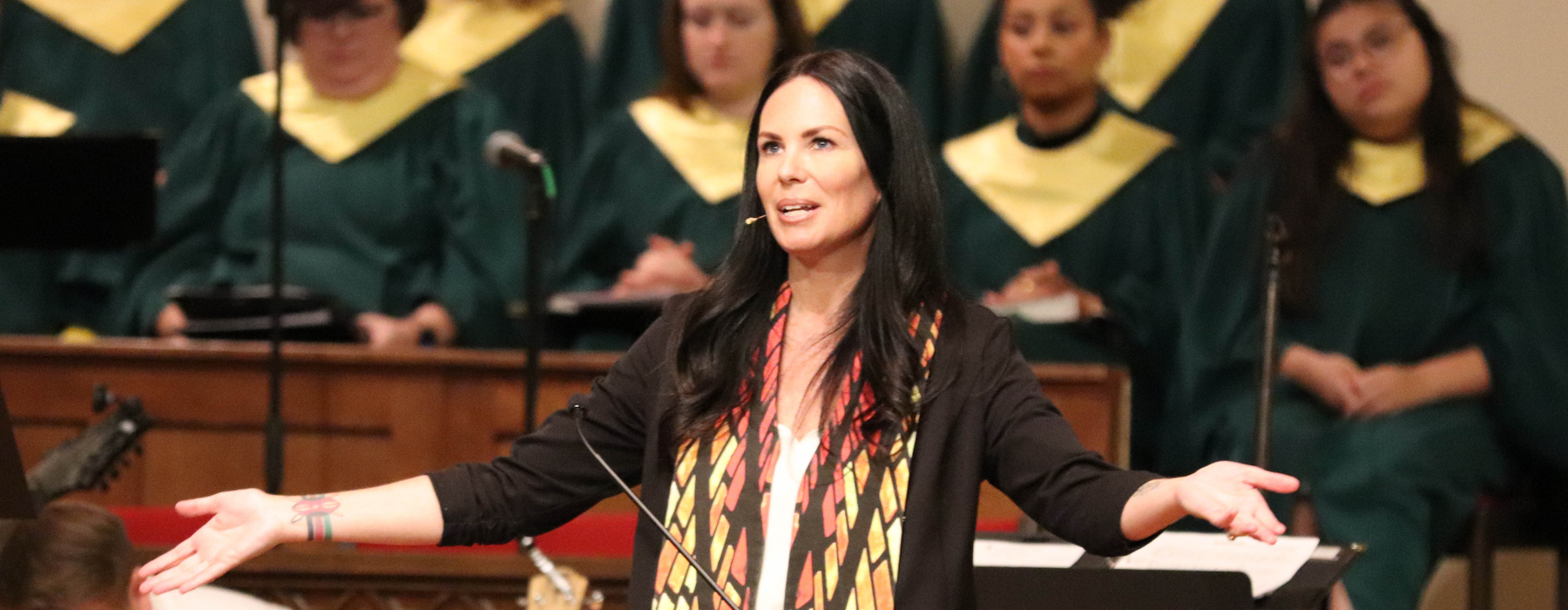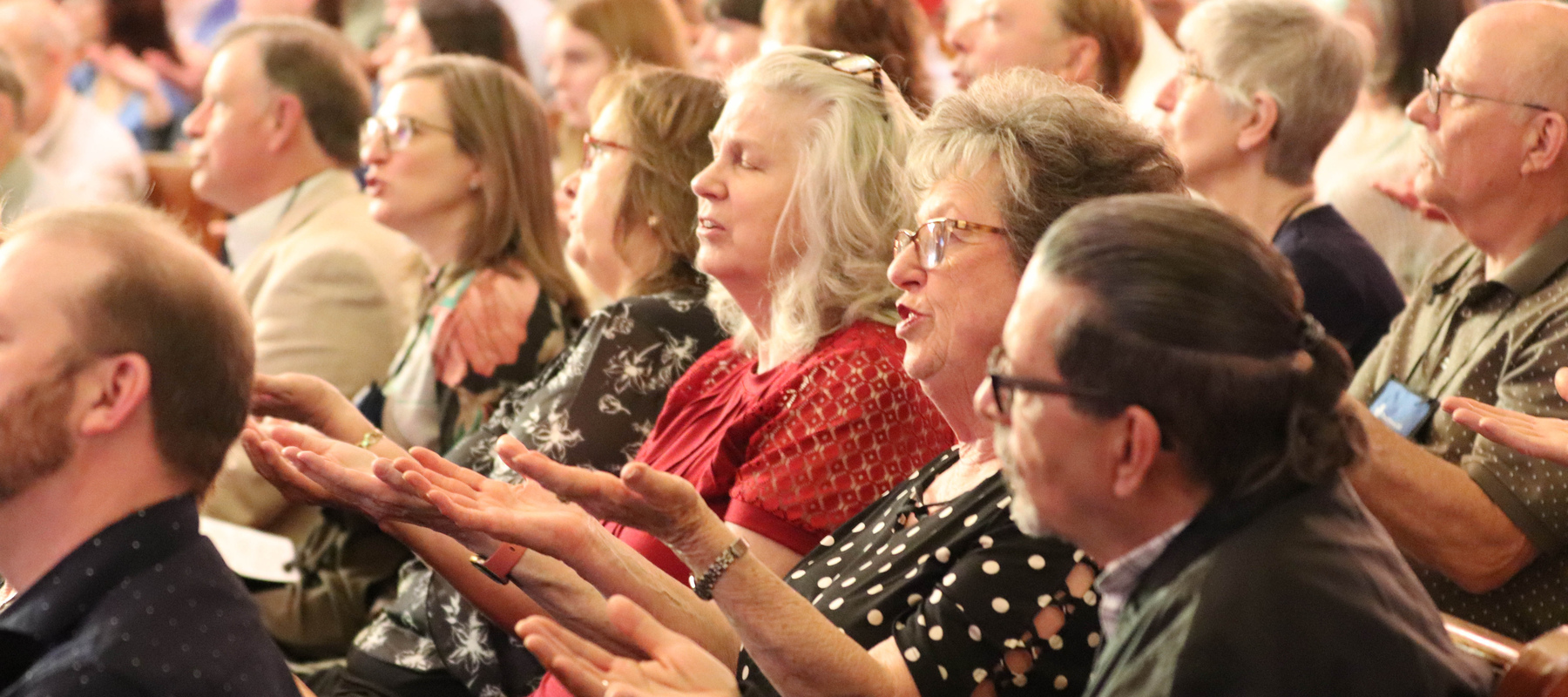
The Rev. Jamie White leads worship attended by GA226 participants at First Presbyterian Church in Salt Lake City on June 30, 2024. Photo by Kristen Gaydos
Although the love chapter of the Bible — 1 Corinthians 13 — has become so popular that portions of it are quoted on coffee mugs and embroidered pillows, it has a deeper meaning, one that is relevant to the evolving church of today.
So said the Rev. Jamie White, pastor of First Presbyterian Church of Salt Lake City, as she gave a sermon, encouraging her congregation and guests from the 226th General Assembly of the Presbyterian Church (U.S.A.) to think more deeply about love.
In 1 Corinthians 13, the Apostle Paul “goes to great lengths to describe the absolute necessity of love as the source and motivation for everything, telling us that love matters more than knowledge, more than our impressive spiritual gifts, more than any of our acts of ministry or service, more than anything at all, actually,” White said.
Her sermon is part of the church’s summer series on the Fruits of the Spirit (Galatians 5:22–23) and focused on a portion of the Bible that is commonly quoted at weddings. But 1 Corinthians 13 is more than simply sweet or poetic, White noted.
“May I remind us that these words were not penned for a wedding but for a church in the middle of a crisis — a church not so dissimilar from our own, that was struggling to hold on to what really mattered in the midst of challenges, and pressures and changes all around them,” she said.
White continued, “Paul wrote this striking chapter to wake these believers up, to remind them of who they were called to be as followers of Christ. So now, as we hear these words again this morning, may we hear them with conviction and the promise of new life that they hold for each of us, too. Hear the word of the Lord.”
White emphasized verses 1–8, which begin, “If I speak in the tongues of men or of angels, but do not have love, I am only a resounding gong or a clanging cymbal.”
She recalled times in her life, such as the first few years after Bible college, when her actions were not always motivated by love but rather by insecurity and ego. She also noted how easy it is to toss around the word “love” in today’s society, noting that she might say she loves her family but also say she loves french fries and the “Ted Lasso” show, as if all forms of love are the same.
In 1 Corinthians 13, “Paul outlines the character of the highest form of love, agape in the Greek, making sure we understand what real love looks like,” White said. “It is patient, kind, protecting, trusting, hoping, persevering, rejoicing in truth.”

Worship at First Presbyterian Church in Salt Lake City on June 30, 2024. Photo by Kristen Gaydos
Paul also describes what love isn’t, she said. For example, “love is not jealous, boastful, arrogant, rude, selfish, willful, easily angered, resentful, dishonoring.” White went on to caution against ministry that doesn’t have love at the core of it.
“It is absolutely possible to pull off loveless, performative spirituality,” she said. “People might praise us for it. It might even seem to do some real good in the world. I mean, mountain-moving faith is probably really helpful. … But the caution remains; if love isn’t at the heart of what we are doing, not only is it just noise, but it will amount to nothing.”
On a more positive note, “for all of us desperate for more of God’s love to grow in our lives, not only is the Spirit of God at work in this world, but the Spirit of God is at work in each of our own souls as well,” White said.
During prayers for the people, Pastoral Associate Joe Bagdanov prayed for God’s “genuine, life-transforming, crucified love.” He highlighted people feeling especially burdened, including those recovering from surgery or coping with depression or anxiety.
Bagdanov also prayed for those doing the business of the General Assembly, which continues through Thursday, July 4, at the Salt Palace Convention Center.
“Be with all commissioners, delegates, staff, those moderating … and all those who’ve committed themselves to seeking your will this week,” Bagdanov said. “Important work is being done, so please be in the doing of it” and fill them with a love that is infectious.
